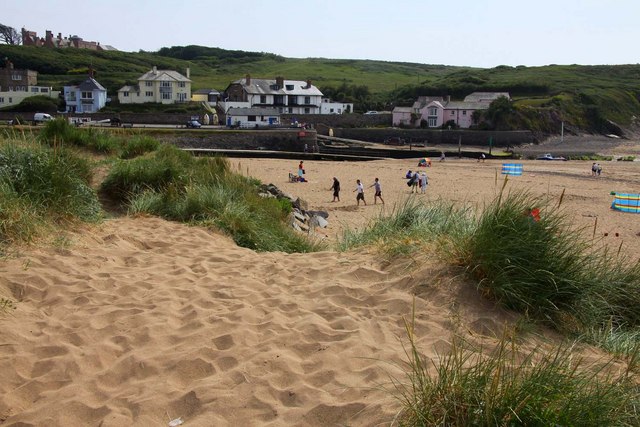SUMMERLEAZE Beach in Bude is among bathing locations across the country which has experienced a sharp decline in the quality of its waters.
According to an unpublished Environment Agency (EA) study completed earlier this year, bathing water quality at some of England’s highest-rated beaches declines sharply during the autumn and winter months when official swimming spots are usually unmonitored.
The findings will cause concern among the UK’s many fans of cold-water swimming, which has surged in popularity in recent years because of its reported health benefits.
The study found that between October and March there were much higher levels of E coli and Intestinal Enterococci at half of the beaches in the trial. These are bacteria found in human and animal faeces that can cause serious gastrointestinal illness.
Summerleaze in Bude saw the water quality drop from ‘excellent’ to ‘sufficient’ during the winter months.
In response to the study’s findings, Greenpeace UK’s chief scientist, Dr Doug Parr, said: “This shows how the health of the environment and our own bodies are linked. Wild swimming and its health benefits must not become unavailable due to the UK’s terrible water pollution.
“We need the Environment Agency to implement year-round testing for bacteria levels and other pollutants from farmland and our negligent water companies. That would allow wild swimmers to avoid these risks. And it would give us data which we can use to help protect the wildlife that doesn’t have a choice of when and where to swim.”
The report’s findings indicated that the rise in bacteria levels at some beaches could be linked to wetter weather. Heavy rainfall can increase runoff from farmland and trigger sewage releases from overflow pipes, used by water companies to reduce pressure on the sewer system.
Another academic study on the popularity of cold-water swimming concluded that more support — including winter testing — was needed to make wild bathing sites safer for women. Lead author, Professor Joyce Harper told journalists that the increased risk of gastroenteritis and other infections from polluted waters could “be avoidable with better monitoring of sites”.





Comments
This article has no comments yet. Be the first to leave a comment.